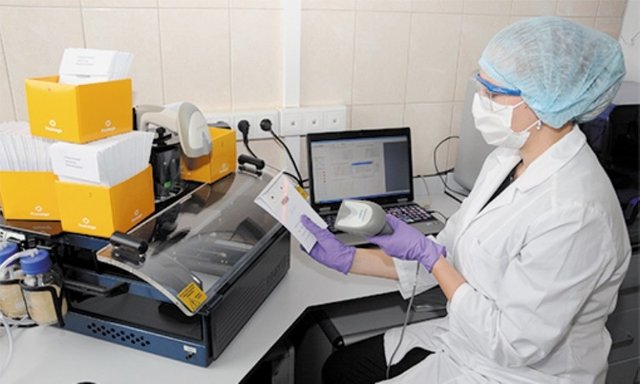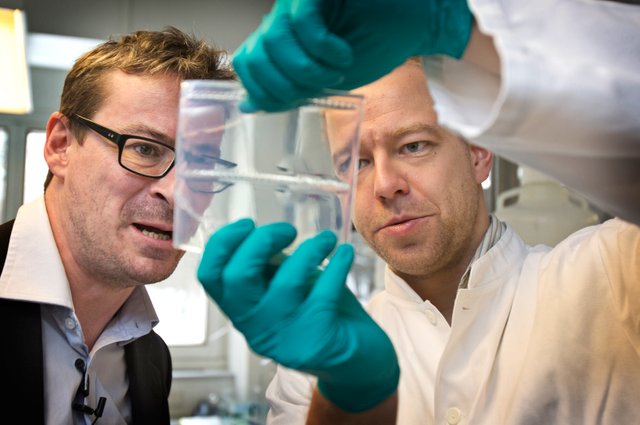DNA in the service of justice: progress or the end of privacy?
Progress in criminology and gets to the Russian regions, more often you can hear that in the disclosure of crimes used DNA research. As once revolutionary changes caused dactyloscopy, and criminals began to think of how not to leave the "fingers", and now DNA — causes mass of discussions in society.
Foreign experience shows that DNA expertise has a high evidentiary value and has already allowed many "criminals" who have spent many years in prison as a result of unfair accusations to be released. And even though only less than 20% of the revised cases resulted in the release of the innocent — it is already a huge success! Science opposed the mistakes of the investigation, and therefore in the future is able to minimize the number of fatal sentences.
While in the United States the comparison of DNA from crime scenes often occurs in the "automatic mode", using the database created in 1990 FBI CODIS (data on arrested, convicted and missing), in Russia is not so modern. At the beginning of 2017, the CODIS database has already helped in more than 350 thousand investigations, and contains information about 12 million attackers. Experts believe that such registration of DNA allows to solve at least 60% of crimes.
It is also Important that unidentified DNA material is detected sooner or later and that it is linked to other crimes committed (in which there are neither suspects nor witnesses). And although genomic registration in Russia began only in 2009, partial funding still does not allow to count on a serious leap (the base has about 180 thousand profiles, about 0.14% of the population).

Only in the system of the Ministry of internal Affairs of the Russian Federation about 60 laboratories work, and the term of obtaining a genetic profile averages from 1 to 3 days from the moment of delivery of samples. However, dozens of correctional institutions and prisons are still treated carelessly, often without complying with the law on genomic registration in respect of the released convicts for the relevant categories of crimes.
Just a few months ago with the help of DNA quickly came to the participants of the robbery, when the criminals after the RAID on the collector's car threw masks, which were later found. As the remnants of saliva on them, criminologists have found one of the hijackers, the genotype of which coincided with the previously recorded in the database a model prisoner. To determine the other participants did not make special work. Or the case when in the UK on the lost boot with traces of sweat it was succeeded to reveal recently released murderer.
Of particular interest is the development of identification based on genome analysis (DNA phenotyping). It became possible to establish the sex, eye color, hair, ethnicity, and with the help of computer simulation to recreate some features of the face, which is important for the primary limitation of the circle of suspects. Although many experts are skeptical, but the approximate "portrait" with this method already allows you to annually disclose several dozen crimes in the United States.
Yes, the human factor and the accuracy of certain forensic techniques are not always 100% guaranteed, which means that based on the expert's controversial opinion, the investigation may go on the wrong track, missing an important time. DNA examination, as well as many other things, depends on the competence of experts, and contamination of samples can occur at virtually any stage. After all, even the background DNA traces of other people, appeared before the Commission of the crime, can spoil a lot.
Today in Russia only those convicted of serious or especially serious crimes, as well as crimes against sexual inviolability, are subject to inevitable genomic registration. Although disputes over the right to personal integrity continue not only in the United States but also in Russia, everything goes to the fact that the sampling will affect the maximum number of representatives of the criminal world. And some countries even discuss the idea of collecting DNA from babies at birth, how do you like this idea?

It is no secret that most crimes are committed by those who started with ordinary offenses. So the idea of genomic registration not only serving the sentence, but also accused and suspected of committing crimes - has every chance to be realized. After all, according to the experience of other countries, for effective analysis requires the availability of DNA data at least 1-2% of the population.
Of course, the practice of genomic registration of all offenders will significantly affect the detection of crimes, but how to deal with personal integrity and the presumption of innocence? More importantly, our concern for privacy or a way to quickly identify the perpetrator? After all, taking fingerprints from suspects for a long time does not cause any contradictions...
